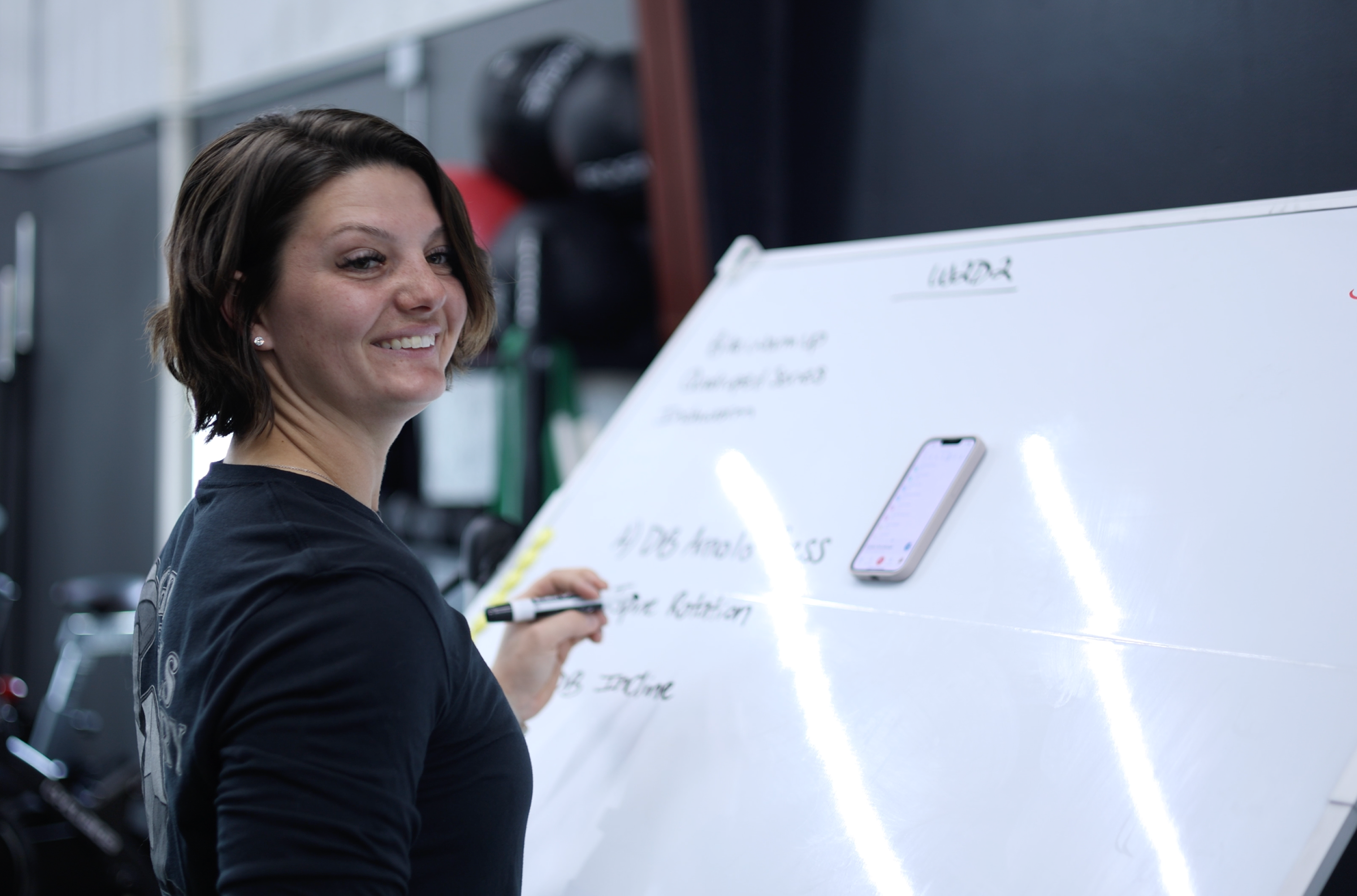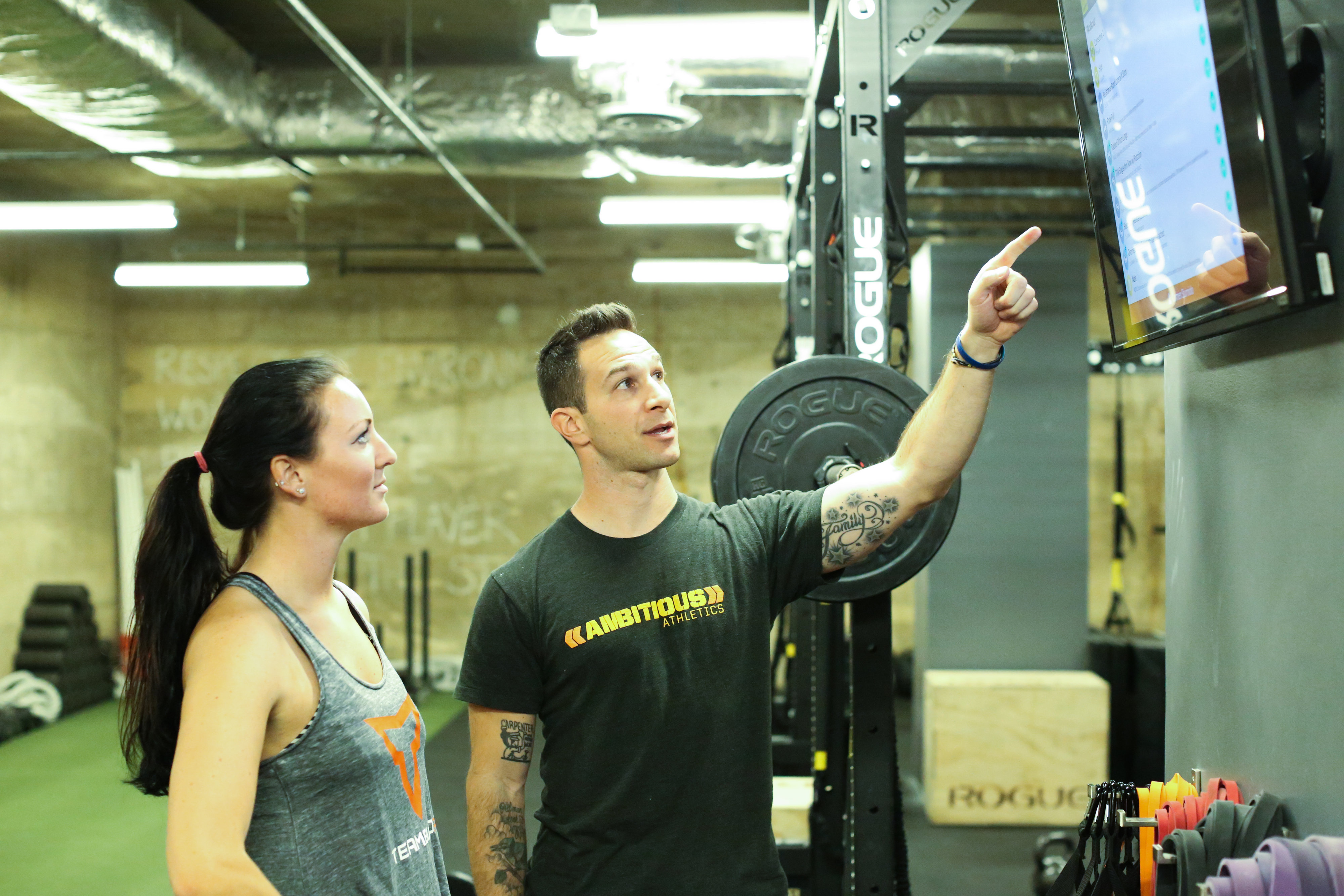It’s Not You, It’s Me: Why Millennials Aren’t the Issue in Strength and Conditioning
There are a million fluff pieces and field guides out there outlining “dealing” with millennials as if they are a foreign species.
They all cover the same things; instant gratification, access to information, and everyone’s favorite word, "entitlement." In strength and conditioning, we are all programmed to have a deep appreciation for the process and the long game. On the surface, the characteristics of this generation are contradictory to our long view. This can make coaching millennials who are present-minded and empowered a difficult and frustrating task. Instead of viewing these traits as opportunities and using them to our advantage, we often get frustrated. I have worked to spin these characteristics in a positive light. “Win the day” has become “win the moment”, and as coaches we need to adapt. There are realities that strength coaches (and all coaches if we’re being honest) need to accept and embrace if we hope to continue to be successful in dealing with the current and future generations of college athletes.
When harnessed and steered in the correct direction, instant gratification can be transformed into unbridled ambition. The feeling of “why can’t I have it now?” can be a strong motivator if the end goal can be broken down into pieces with the end game being the ultimate prize. Wins along the way will just enhance the motivation toward the end goal as long as they are recognized as such. Took a C- squat to a C? Great. That’s a win. Celebrate it and allow your athlete to feel your pride. Tim Grover explains this perfectly throughout his book Relentless. He states, “A cleaner’s favorite phrase should be ‘Done. Next.’” Teaching our athletes to adapt this mindset of recognizing their small wins as stepping stones will deliver enough satisfaction to curb the need for instant gratification and, in turn, support their urge for more. Many coaches are already doing this with success by naming top performers of the day or highlighting small victories with public acknowledgement such as social media or putting a name on a board. The process is and always will be important both in training and in life, but appreciation of the steps along the way is vital to keeping an athlete that craves short-term success motivated to succeed in the long run.
Today’s athletes have been empowered with the option to choose and question things from a young age. Don’t like your AAU coach? Switch teams. Don’t like your high school coach? Transfer schools. Don’t want to train with your team? We’ll hire a personal training guru. To really put this in perspective, consider the fact that some elementary school children are given the option of going to recess or participating in gym class. Let that sink in. In years past, and even when I was going through my athletic career, I was taught never to question the coach and to be a good soldier. This is not the norm anymore. If you haven’t accepted the fact that athletes have been allowed to choose and question things long before they step foot on campus, you are likely already seeing issues with your teams. By building situations that allow the athlete to have choice, or at least the illusion of choice, you can create a much more motivated environment. Ask your athletes for feedback on what they think helps their game the most. Ultimately, it is still your choice how you implement your program, but the athlete now feels as though they have a voice and, as we all know in 2018, everyone wants to be heard. In our program we have exposed the athletes to multiple corrective and recovery protocols throughout the summer. Now that we are in season, we allow the athletes to choose which recovery or correctives they feel benefit them the most and do those as part of their workout. This is a simple way to give the athlete the power of choice while still addressing your goals. Everyone is more likely to do something if they feel it’s their idea.
The days of “because I said so” are long gone. Athletes today have access to the same information as strength coaches and are flooded with stimulus from social media daily. The power that comes with the title of coach is not and should not be the cornerstone of your credibility as a coach. Athletes are going to and should be taught to question your methods (in the right setting). With that in mind, coaches must be ready to explain their methodologies and philosophy at a moments notice. Gone are the days of “the science isn’t important to the athlete”. Today’s athletes crave information and the more support you have behind your program the more credible you become. Now, I know there are coaches who say “I’m not going to explain the science to an athlete.” My question is this. Why not? Because you don’t want to or because you can’t explain it in terms they understand? If you can’t explain your programming to a student-athlete, do you really know the science that well to begin with? Teaching the athlete to understand their own training and the adaptations that we’re trying to create can be invaluable when it comes to soliciting feedback. Agree or disagree, we take the time to explain the science to our student-athletes and it has paid dividends. Empowering your athletes also creates autonomy for them to be successful when you’re not around. A perfect example of this came when I walked into the weight room and saw an athlete addressing his hip flexors. I asked what the issue was and he responded “my knee has been sore, but I remembered you explaining that it was probably my hip flexors so I figured I’d start there.” If you walk in our weight room after practice you’ll hear our athletes jokingly saying “gotta get my glycogen levels right before lift!” while drinking their recovery shakes. To further illustrate, we used to throw out 30-40 post practice shakes per day. Now we have to make extras. Still think the science doesn’t matter to them? We don’t expect our guys to know all the physiology, but giving them concepts they can hold on to has allowed them to take some ownership over their training.
Win the day. We’ve all heard this or seen it on t-shirts and it’s a catchy slogan that I too was once sold on. Over the last year or so, I have adapted my philosophy more toward winning the moments. Athletes are emotional people and often times that passion is what makes them the competitors we love to coach. However, the instant gratification mindset combined with limited life experiences to draw from leave today’s athlete vulnerable to irrational behavior and faulty response patterns when faced with adversity. Every athlete we work with and every person in the world has a default negative emotion they tend to sway toward when dealing with adversity. This can be anger, sadness, or a myriad of other combinations. Typically, humans do this without thinking. As strength coaches it is our job to introduce adversity in a controlled setting. Often times, however, we introduce the adversity without giving the athlete the tools they need to respond correctly. We chalk it up to “he’s a hot head” or “he breaks under pressure”. No, he got mad because you didn’t help him see what allowing anger to drive his behavior would produce. Did he break under pressure or did you not prepare him to keep perspective under adverse conditions? In my opinion, it is our job to connect the dots for the athlete and teach them how to recognize the negative emotional sway that occurs when they face challenges. To do this we must lend our experiences to the athlete and empower them to make a conscious decision to overcome their default responses. Then, we can replace it with a new behavior that creates a more optimal outcome. This is where your ability to be vulnerable with your team is combined with your ability to be a storyteller to become your biggest asset. When coaching millennials, it's important to show your student-athlete you are not perfect either. Tell them a story about when you’ve lost a moment or come to face one of your own demons. Everyone has them, and we should be able to call them by name and use our negative experiences to help the next generation. E + R = O. Work to connect the dots with your athletes. Dale Carnegie lists this principle of highlighting your own failures as one of his pillars of dealing with people and some would argue he knows a thing or two about managing people. Talk about your own mistakes first. As coaches we are often placed on a pedestal by our athlete simply because of our position. Come down off of it and show the athlete that you too have had to grow and overcome your negative response patterns. People are more likely to trust others if they can relate to them and an easy way to do that with your teams is to show that you make mistakes.
This article was one of the more challenging ones I’ve written. I didn’t want it to fall into the category of the quick click articles all over the internet, but I also didn’t want it to become a psychology dissertation (not that I’m capable of that level of writing…after all I’m still a meathead at heart). Working with athletes at any level is a challenge, but working with 18-22- year-old young men and women who have been empowered and rewarded their entire lives can be even more difficult if we do not maintain our perspective. Millennials are not lazy, entitled, or insubordinate. They just aren’t soldiers anymore and if you ask me, blind loyalty has led to some pretty ugly things in athletics, politics, and human history in general. So as coaches, lets maintain the right perspective. It is not and never has been about us. Your preferred coaching style is irrelevant. It’s about meeting the athlete where they are and finding the most advantageous way to accomplish goals that prepare them for their sport and for life. Today’s athletes are smarter, not softer and maybe we as coaches should try and model that a little in more in our own lives.

References:
Carnegie, D. (1981). How to win friends & influence people (Anniversary ed.). New York, NY:
Simon & Schuster, Inc.
Grover, T. (2014). Relentless. New York, NY: Simon & Schuster Inc.
Subscribe to our blog
Subscribe to receive the latest blog posts to your inbox every week.
Related posts

Why Neck Training Belongs in Every Athlete’s Strength and Conditioning Program

Raising the Bar for Strength & Conditioning Internships
